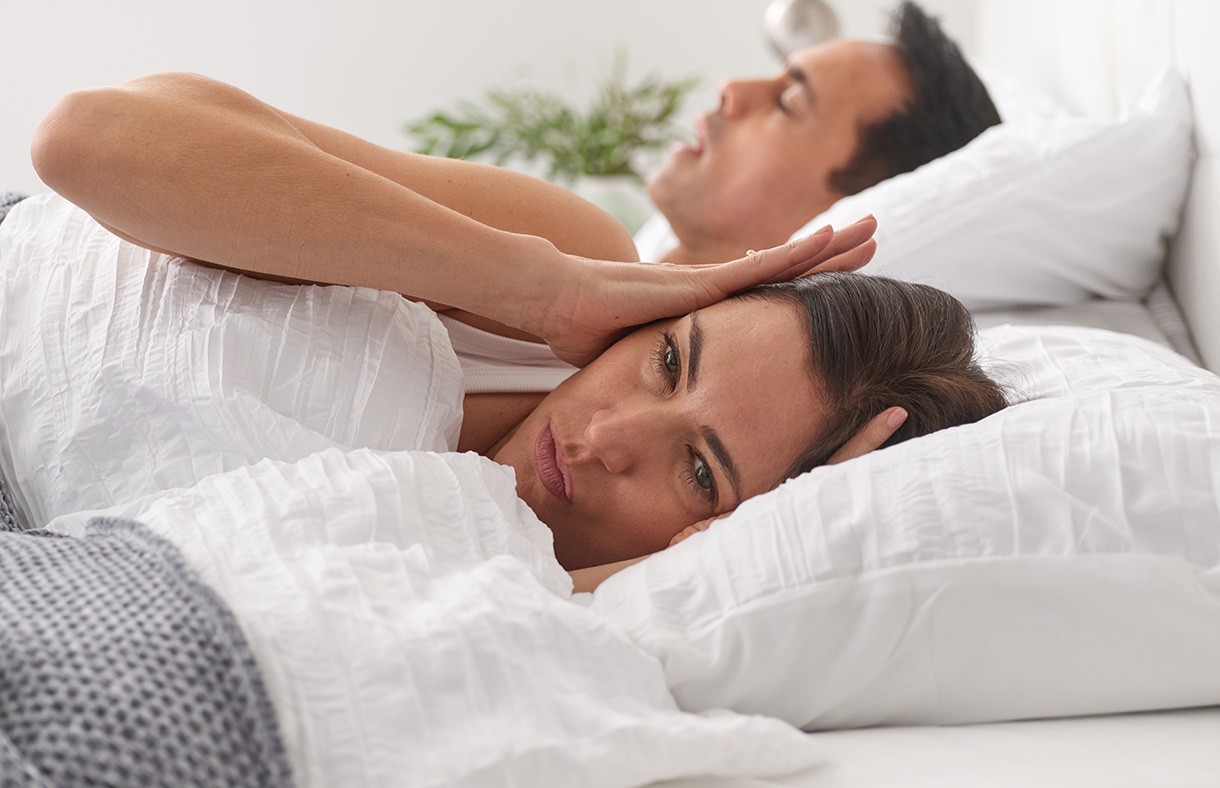How Does Snoring Affect Your Sleep, Hormones, and Relationships?

|8th September 2021
Snoring is a common problem that we all deal with from time to time, especially if you share a room with a partner or a roommate. The interesting thing about snoring is that you are seldom aware of it when it happens to you, but you almost certainly would notice it in someone else.
We can all agree that snoring can be annoying. Beyond that, what are some of the very real implications of snoring? How does it affect your sleep, hormones, and relationships? Let’s look at the effects of snoring on each of these areas.
Snoring can be harmless, but it can also be a precursor to a more serious medical condition known as obstructive sleep apnea. The word ‘obstructive’ refers to the literal obstruction that occurs in your airways when you are snoring. When you have a serious case of obstructive sleep apnea, your body might not be getting enough oxygen. This can seriously impair your sleep, whether you are aware of it in the moment or not. This explains why heavy snorers often wake up and find themselves still feeling tired.
When you are sleeping, many important biological processes occur – one of them is the release of growth hormones and sex hormones. If you experience a severe problem with snoring, the release of these hormones may be interrupted. This is bad news because these hormones are important for your overall health and vitality.
Lastly, snoring can have a negative impact on your relationships. Snoring always affects more than just one person. Unless your partner or roommate has learned to completely adapt to your snoring, their sleep is likely to be negatively affected. When your partner or roommate is consistently sleep-deprived, they might become irritable, fatigued, and experience low moods. This may then turn into resentment and general ill feeling directed towards you. This of course is not a recipe for healthy relationships.
In the past, if you had a snoring problem, you would be advised to just deal with it – the same goes for anyone sharing a room with you. However, the advancement of technology means that there are cheap tools at your disposal to deal with this problem. eXciteOSA, for example, is a device that has been clinically proven to reduce snoring and mild sleep apnea in just 20 minutes per day, over 6 weeks. Try it today and begin your journey towards better sleep – and all the benefits that come with it.
References
- Ketchell (2015) Chemical messengers: how hormones help us sleep.
Retrieved from: https://theconversation.com/chemical-messengers-how-hormones-help-us-sleep-44983

